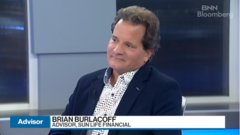Jul 21, 2022
Brian Madden's Top Picks: July 21, 2022
BNN Bloomberg
Brian Madden's Top Picks
Brian Madden, chief investment officer, First Avenue Investment Counsel
FOCUS: North American equities
MARKET OUTLOOK:
Overweight cash, golds, staples, utilities, health care and other recession-resilient businesses. Avoid last cycle‘s leaders - FAANG mega-cap growth stocks, discretionary businesses, work-from-home beneficiaries, etc. Take a selective, best-in-class approach within the technology, industrials and financial sectors and across the board favour self-funding companies with strong balance sheets as the cost of debt and equity capital rises.
Since my last appearance on June 16, U.S. stocks have bounced nine per cent, leading some to wonder whether the bear market has ended, whether a recession will be avoided, whether it’s time to “pick the bottom,” etc. Concurrently, Canadian stocks have chopped around in a seven per cent range, but have barely budged from point to point over the past month. Why the discrepancy between the two markets? U.S. markets are heavily weighted to long-duration growth stocks whereas Canadian markets are heavily weighted to cyclical and commodity producers. The apparent bet in the markets is that commodities have peaked (i.e. oil, copper, gas, agricultural commodities), inflation is abating, and the U.S. Federal Reserve will “blink,” short-circuiting their ongoing monetary tightening cycle – disproportionately benefitting long-duration growth stocks. We don’t buy the soft-landing narrative and neither do bond markets or commodity markets, which is why both remain in selloff mode – forewarning of more rate hikes and the attendant demand destruction that will occur.
One shoe has dropped in this bear market – valuations have reset to lower levels vs. late 2021. The second shoe we need to drop is investor expectations (i.e. corporate earnings and economic forecasts) recalibrating to lower levels. We recognize that recessionary bear markets last just 16 months on average and while protecting capital as we await a good, well-researched, well-specified, multivariate “risk on” signal, our team is preparing a more aggressive shopping list for the pending new bull market that invariably follows a bear market.
- Sign up for the Market Call Top Picks newsletter at bnnbloomberg.ca/subscribe
- Listen to the Market Call podcast on iHeart, or wherever you get your podcasts
TOP PICKS:
Latest purchase July 2022 at $175.04
The company is a large and well-diversified pharmaceutical company with a drug portfolio that is better protected from patent cliffs than its peers. Beyond pharmaceuticals, the company manufactures medical devices like joint replacements, cardiovascular implants and contact lenses. Lastly, the company has a consumer products division that owns iconic brands like Tylenol, Aveeno, Neutrogena, Nicorette and Imodium which they plan to spin off next year – a move that will likely unlock hidden value as the segment re-rates up to pure-play consumer packaged goods peer multiples. The shares trade at an undemanding 17x earnings and yield 2.7 per cent. While we await this upcoming spin-off catalyst, the business is a stalwart having increased annual dividends in sixty consecutive years and having outperformed the S&P 500 in five of the last six corrections and bear markets.
Latest purchase February 2022 at $147.12
Royal Bank is one of the ten largest banks in the world. With a dominant domestic personal and commercial banking franchise, a top ten global capital markets business and the leading Canadian wealth management franchise, Royal has a very solid and well-diversified earnings stream. It is also rounded out with smaller insurance and investor services and treasury businesses. Royal is well diversified by geography with large-scale businesses in Canada, the U.S. and Europe and in various other global financial centres. The bank is a leader in digital banking and in AI and is using its scale to invest heavily in these drivers of long-term competitive advantages. With a dividend yield of 4.1 per cent and with dividends growing at an eight per cent annual rate over the last decade, we see a highly visible path to ongoing sustainable double-digit returns over a cycle and in fact, the bank has outperformed the S&P TSX Composite in 19 of the last 25 years.
Latest purchase June 2022 at $112.23
Loblaw is the market leader in Canadian grocery with a 27 per cent market share. It is also a dominant competitor in retail pharmacy via its ownership of Shoppers Drug Mart. Relative to grocery competitors, Loblaw is advantaged in the current inflationary environment due to its leading discount banner footprint (No Frills, Maxi, etc. where it sources 60 per cent of revenues) and its well-regarded and wide assortment of private label items, which have a 35 per cent penetration rate in customer baskets. Consumer trade down from branded to private label and from “market” to “discount” grocery formats is likely to further accelerate should a recession unfold, which should help Loblaw take market share from rivals. Canada’s largest loyalty program (PC Optimum) and a small financial services business add modestly to profits but add significantly to data intake and business intelligence, merchandising sophistication, etc. Loblaw is financially strong and recession resilient due to the categories of “needs” vs. “wants” that it serves. It is advantaged by scale and accordingly has grown dividends at a steady seven per cent compound pace for a decade. Currently trading at 18x forward earnings and yielding 1.4 per cent, we see good scope for Loblaw to outperform the TSX as it has done in five of the last six corrections and bear markets.
PAST PICKS: July 7, 2021
TD Bank (TD TSX)
- Then: $86.94
- Now: $82.16
- Return: -5%
- Total Return: -1%
SNC-Lavalin Group (SNC TSX)
- Then: $32.43
- Now: $24.20
- Return: -25%
- Total Return: -25%
NFI Group (NFI TSX)
- Then: $27.85
- Now: $13.46
- Return: -52%
- Total Return: -50%
Total Return Average: -25%
| DISCLOSURE | PERSONAL | FAMILY | PORTFOLIO/FUND |
|---|---|---|---|
| TD TSX | Y | N | Y |
| SNC | N | N | N |
| NFI | N` | N | N |












